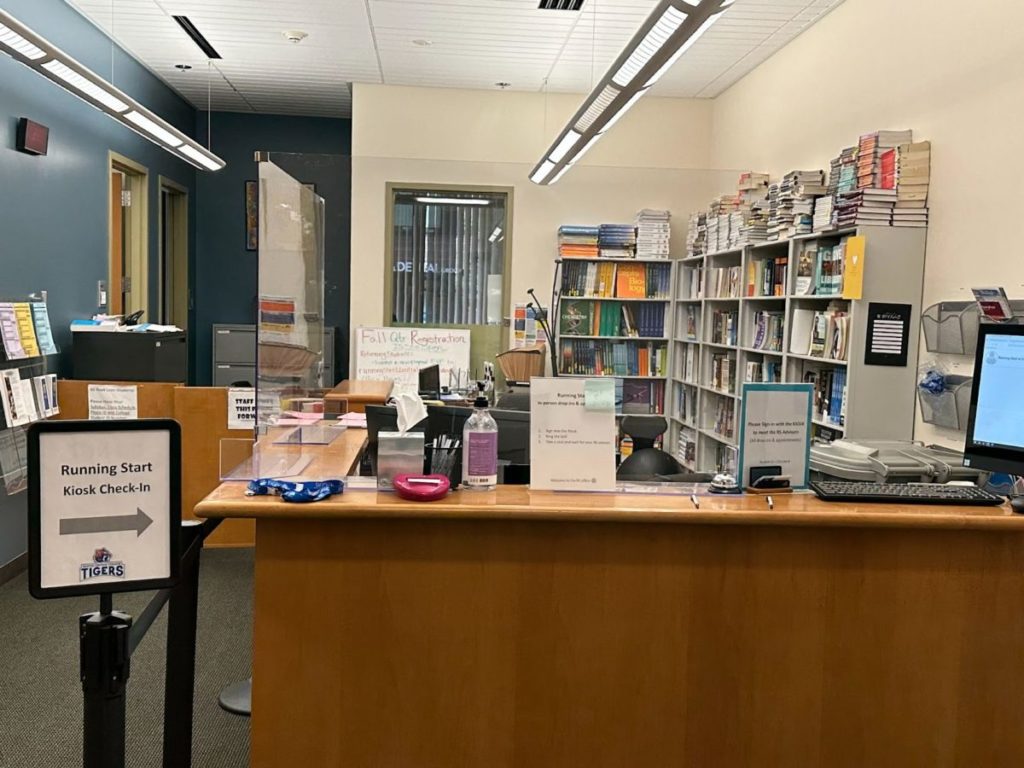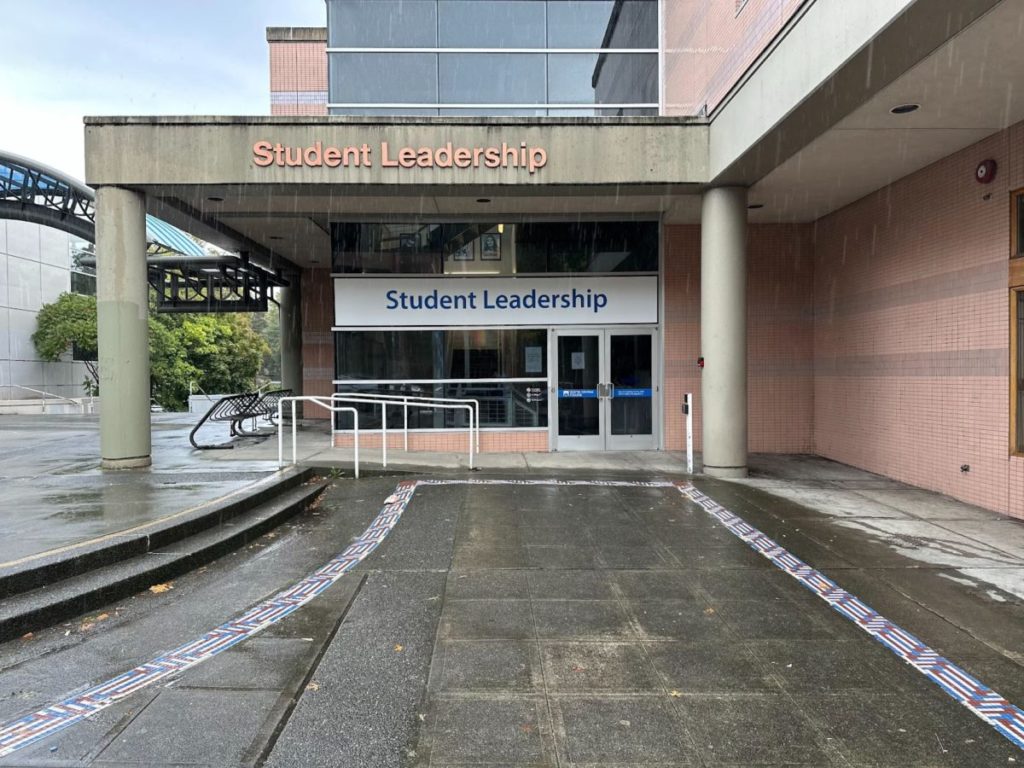This article will serve as a guide for new (or current) running start students to successfully utilize every aspect of this lucrative program.
Last fall, I was a first-year running start student who felt overwhelmed navigating college life on my own. Coming from a smaller school, I had access to a guidance counselor, but students coming from bigger schools don’t have that privilege. I was determined to figure everything out on my own (the hyper-independence). To ease the first-year jitters, here’s a checklist of what you should do in your first quarter here at Central. Included are some tips from a Running Start advisor!
- Learn to navigate ctcLink.
Cade, a first-year running start student said “ctcLink is a nightmare, it took an hour to get the hang of.” CtcLink is the bane of every student’s existence, but it’s the system that holds everything together. You can register for classes, add or drop a class, check your schedule, etc.
Grace Vasquez, a Running Start advisor at Seattle Central, reminds students to activate ctcLink.
“Learn to navigate it so you can pull up your schedule,” Vasquez said. “A common misconception is that students think we email them their schedule—it’s all on ctcLink!”
Here is a helpful link, scroll down to find what’s needed: https://www.seattlecolleges.edu/ctclink/ctclink-students/ctclink-help-resources-students
- Get your school ID early.
The line gets really long the first week of the quarter, so don’t procrastinate. I recommend getting a school ID soon after registering at Central. There is a $10 fee and the room is 1104 (Enrollment and Financial Services).
*Don’t lose your card, the replacement fee is $30.

- Schedule an appointment with your HS counselor.
In the meeting, ask what high school credits you need to fulfill. Discuss what majors you’re interested in—this is especially important if you’re planning to transfer to a four-year university. I will cover this topic more in-depth in the next section.
*If you qualify for free/reduced lunch, make sure a HS counselor ticks it off on the EVF (Enrollment Verification Form). Class, lab, and book fees could be waived.
- Schedule an appointment with a running start advisor
In this meeting, grab a two-year transfer sheet to fill out with the advisor. There are three different tracks you could take (depending on your intended major). There’s the AA, AS track one, and AS track two. You should tell the advisor which high school credits you still need to fulfill, and those classes should be the ones you will want to prioritize. Also, search for major prerequisites from the university you want to transfer to. Those classes will be second on your priority list. The rest of the classes should fulfill the 90 credits you need to graduate with an Associate’s.
Here is an example of a two-year transfer sheet: https://seattlecentral.edu/pdf-library/college-transfer/AA-DTA-degree_V4.0.pdf


- Register for classes early.
Once you have a two-year schedule mapped out, you know ahead of time which classes you need to take. In order to register early for classes, make sure to get in your EVF on time every quarter. EVFs will need to be signed by a HS counselor and parent/guardian.
Communicate with your HS counselor!!
**pro tip: schedule quarterly meetings with your counselor to sign EVF’s in advance.
- Use Rate My Professor.
Disclaimer: take these reviews with a grain of salt!
There are usually multiple professors teaching any given class. I always use this site to choose a professor with a good review. This way, I know what to expect by the time class starts.
Don’t depend fully on a review—some people might give a review after failing the class, which leads to a misconstrued review.
Asking around is a different approach—see if there’s someone you know who has taken that class. If not, most of the tutors (both SAM and Writing Center) have been students at Central, so ask which professors they recommend for the classes of your choice.
- You’ve enrolled in a class! Now what?
Make sure you attend the first day of class. If an emergency comes up, communicate with your professor.
“Students who are a no-show on the first day of class are usually dropped and their spot is given to a wait-listed student,” Vasquez said.
- Wait-listed from a class?
Don’t worry! There’s still a chance. Be proactive: send follow-up emails to the professor and if it’s an in-person class, go the first day! Some students may be dropped, resulting in an open spot for you.
- Adding/dropping a class?
You can make that change on your own via ctcLink. If you need assistance with that, refer to the link shared in the “Learn to Navigate ctcLink!” Afterward, make sure to update the running start office!
If a class that you want to switch to is full, instructor permission is required to enroll, so don’t procrastinate sending that email.
- Take advantage of the resources available.
Besides financial aid, which work-study falls under, resources offered at school are open to all running start students.
To view them, here is the link: https://seattlecentral.edu/campus-life/student-support-and-services
*emphasis on tutoring centers!
If support is needed to find a resource on campus, talk to a running start advisor.
- Engage in School Life.
New students might be overwhelmed adjusting to Central their first quarter and overlook engaging in school activities.
“I don’t know much about school life at Central but I have seen some posted fliers,” says first-year running start student Cade.
Like any school, there are a multitude of clubs to join, and you can also start your own! If you have any questions, head to the Student Leadership Building, across the street from BE.
Here is a link to active clubs at Central: https://studentleadership.seattlecentral.edu/student-clubs/all-clubs
There are also events held by different clubs around campus. If you’re interested in learning the process of event planning or would like to hold your own event, contact Kano Cheng at kano.cheng@seattlecolleges.edu
To subscribe to the event calendar click here.

Lastly, while staying on top of coursework is important, don’t forget to have fun! These two years go by really fast, so make the most of it. I hope this checklist makes your time here less stressful. Remember, if you have any questions, either head over to the Running Start office, schedule an appointment online, or email them! They are here to support you.







Be First to Comment